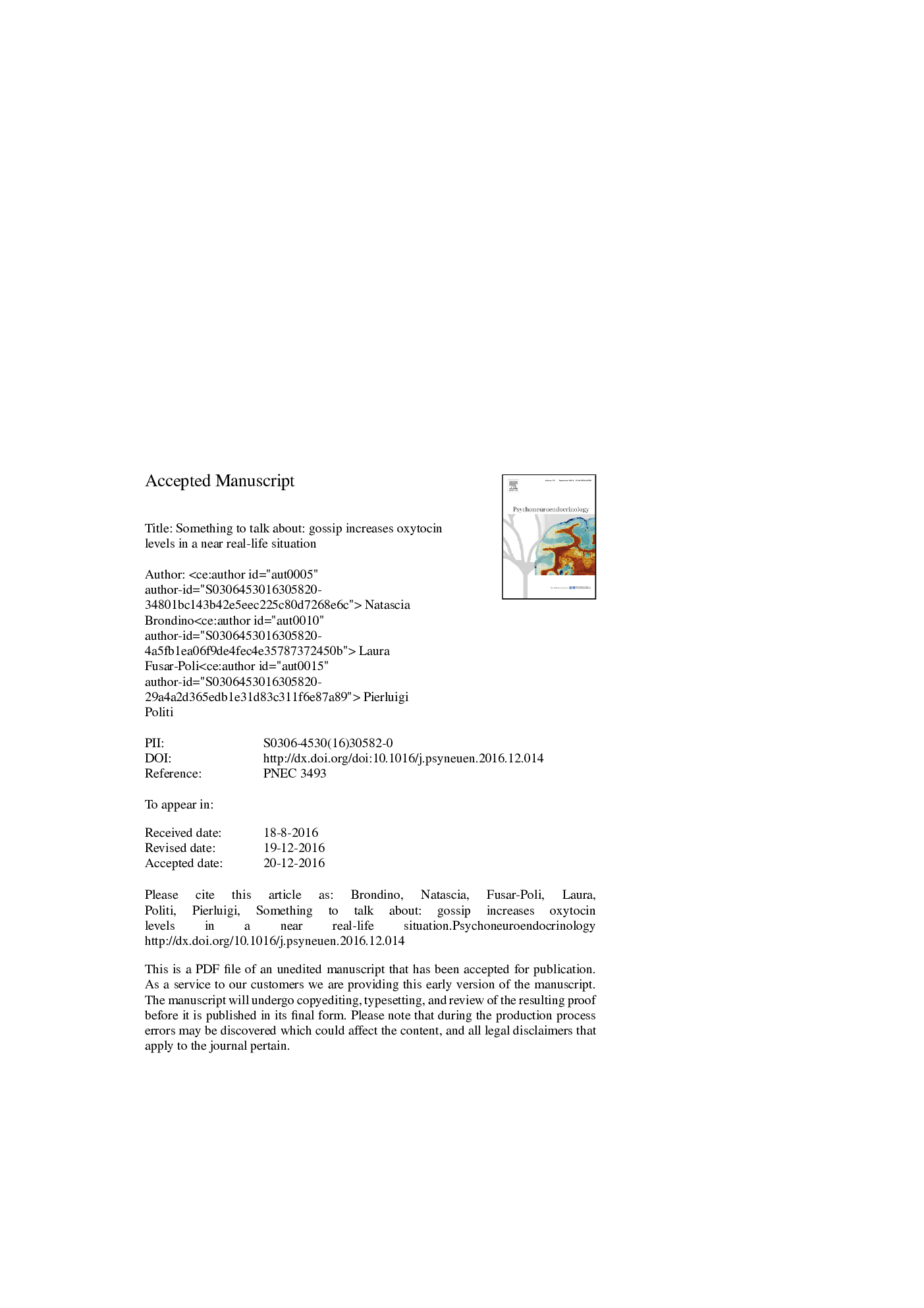| Article ID | Journal | Published Year | Pages | File Type |
|---|---|---|---|---|
| 4934570 | Psychoneuroendocrinology | 2017 | 25 Pages |
Abstract
Gossip is a pervasive social behavior. Its evolutionary survival seems related to its social functions, such as establishing group rules, punishing trespassers, exercising social influence through reputational systems, and developing and strengthening social bonds. We aimed at evaluating the effect of gossip on hormones (oxytocin and cortisol) and at identifying potential mediators of hormonal response to gossip. Twenty-two female students were randomly assigned to a gossip conversation or to an emotional non-gossip conversation. Additionally, all participants underwent a neutral conversation on the second day of the study. Salivary oxytocin and cortisol levels were measured. Oxytocin increased significantly in the gossip compared to the emotional non-gossip conversation. A decrease in cortisol levels was observed in all three conditions (gossip, emotional non-gossip, neutral). Change in cortisol levels was similar across conditions. Psychological characteristics (e.g. empathy, autistic traits, perceived stress, envy) did not affect oxytocin rise in the gossip condition. Our findings suggest that oxytocin may represent a potential hormonal correlate of gossip behavior.
Related Topics
Life Sciences
Biochemistry, Genetics and Molecular Biology
Endocrinology
Authors
Natascia Brondino, Laura Fusar-Poli, Pierluigi Politi,
